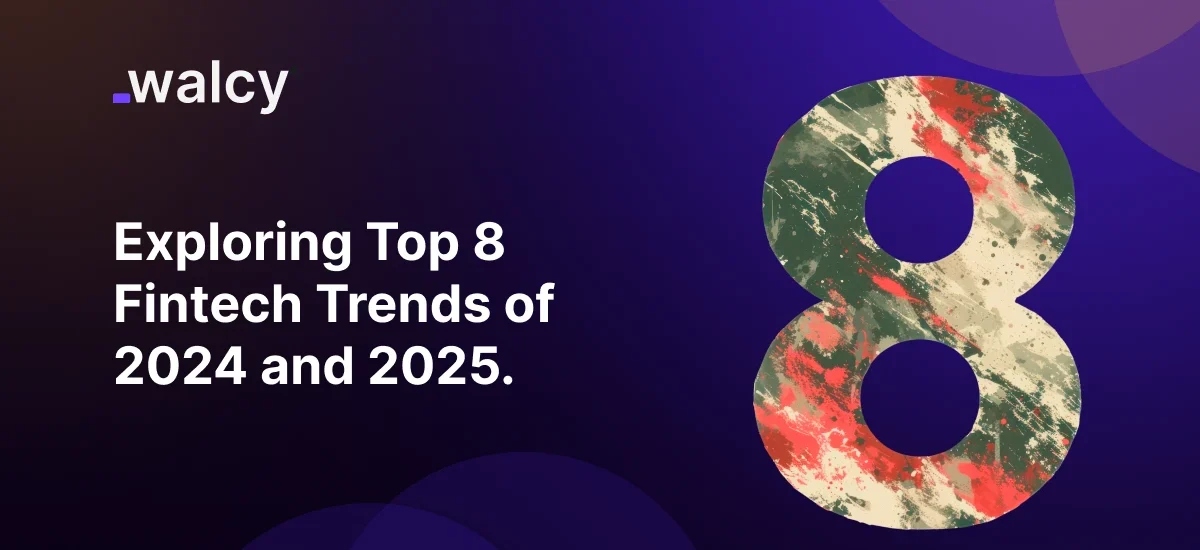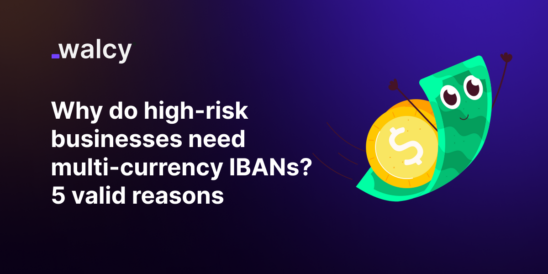The face of the Fintech Industry is fast changing. It is driven not only by the adoption of advanced technology and changing consumer expectations but also by an exceedingly evolving regulatory landscape. To stay on top of this market race, a player needs to be fully aware of the top fintech trends entering the year 2024-2025. In this blog, the key trends of the Fintech industry will be discussed in depth.
Fintech Trends of 2024 & 2025
The Rise of Embedded Finance
Embedded finance is a scenario that is created when finance becomes part of every non-finance platform. As such, it has become the most treasured and fast-rising fintech trend. The company is encapsulating banking, lending, insurance, and payments within its platforms so that any user of an industry will have a one-stop-shop experience.
Example: Online marketplaces can now include embedded payment solutions that engage client’s rights on the website. This is something that will continue to grow once more organizations begin to realize that the inclusion of financial services opens up new initiatives within their companies that can lead to expanded customer loyalty and increased revenues.
Emergence of Digital Banking and Neo-banks
These digital banking trends are changing the face of the monetary world further, as neo-banks and online-only banks are in the surge in every nook and corner of the world. Without the concern of physical branches, they will only offer their services through a fully online or mobile environment. Individuals find them attractive, as it is very convenient to have fewer fees and much more customer-oriented, something which conventional banks lack.
By 2024-2025, one would see increased competition between incumbent banks and neobanks. Neobanks by then have expanded their product sets, including customer experience, and leveraging data analytics for personalized services.
Artificial Intelligence and Machine Learning in Fintech
Indeed, artificial intelligence and machine learning rule the present days of FinTech. From customer service to risk management, every aspect is revolutionized by these technologies. For instance, with AI-driven chatbots, there is currently 24/7 customer service, while fraud detection will be further enhanced through ML algorithms with patterns that predict fraudulent acts.
The use of AI and ML will go further in the coming years to credit scoring, investment management, and personalized finance advice. Therefore, companies that will be able to utilize this technology wisely will have a leg up on the competition that operates within the same fintech space and provides innovative services with greater efficiency.
Buy Now, Pay Later Services
BNPL services have grown so fast in the last two years that they may be one of the major fintech trends of 2024 and likely 2025. Customers can make purchases using BNPL services and pay for them over time in installments, typically at no interest.
BNPL has grown as a way of payment-one of the most convenient and flexible ways, especially for the young generation. As more merchants integrate BNPL into their checkout options, the market is bound to explode further when the regulation of services starts to take shape. If these firms want to proceed further with this line of business in growth, they have to go through these changes in regulations and focus on responsible lending.
DeFi and Blockchain Technology
DeFi and blockchain are one of the main trends in the Fintech market. Building upon all these financial services regarding lending, borrowing, and trading, DeFi uses blockchain technology in peer-to-peer transactions. Blockchain technology use is going far beyond mere cryptocurrency in fintech applications as it undergoes continuous development.
More and more blockchain-based platforms will keep emerging, with a greater scale of services such as cross-border payments, smart contracts, and so on. However, with the opportunities brought by DeFi, a great number of challenges in terms of regulation and safety remain, where most of the future efforts will lie.
Better Cybersecurity
With more and more sensitive financial data being entrusted to fintech companies, the demand for better cybersecurity has grown rather loud. Enhanced cybersecurity has likely been one of the latest yet hottest fintech trends, growing ever so more vulnerable to cyber-attacks and data breaches as new technologies emerge and large amounts of data are handled by these firms.
With the increasing pressure from the security technologies, the fintech firms had little option but to invest in more sophisticated security technologies, such as biometric authentication, encryption, and multi-factor authentication.
The regulatory bodies have also applied pressure through the increasingly strict data protection requirements on fintech companies so that they push harder for more stringent standards of security. A company like this will gain a competitive advantage through trust by securing its customers in the upcoming years.
Integration of Financial Wellness Tools is becoming a major talking point for both fintech firms and consumers. Tools that help users manage their finances, track their spending, save for the future, and reduce debt are increasingly in demand.
Probably the biggest growing trend in digital banking these days has to do with the integration of financial wellness tools into banking apps, among other financial platforms. These often use AI and data analytics to provide personalized advice and insights that help the user make informed decisions when it comes to their money. With consumers continuing to demand more control over their money, the fintech firms that will rise from the competitive crowd will be those that can offer full-scope financial wellness solutions.
Read about: Online Banking Security: A Comprehensive Overview”
Rise of Green Fintech and Sustainable Finance
Sustainability is now a big talking point in the world of FinTech, and green FinTech just happens to be among the top FinTech trends. Everything is touched, from financial technology solutions that enable an individual to invest in renewable energy or visualize their carbon footprint.
Then there is the issue of sustainable finance: this is when financial institutions make considerations with high regard for the environmental, social, and governance standpoint when making their investment choices. With customers and investors becoming more ecologically aware, fintech companies that will embrace ideals such as these and make available financial products that are sustainable are bound to see higher demand.
Rise of RegTech
RegTech is among the biggest developing FinTech trends. The RegTech solution enables the financial institution to address a complex set of regulatory requirements inclusions of automation and advanced analytics. These tools are applied to real-time monitoring of transactions for anti-money laundering and know-your-customer regulations, among others. This aims to reduce the chances of getting penalties due to non-compliance with such regulations.
Demand for RegTech solutions will most definitely keep on growing since the regulations within financial industries keep changing. It is in these areas that more innovation is predicted for 2024 and 2025, with RegTech imprinted at the very core of the fintech ecosystem.
How B2B Fintech Solutions Will Continue to Evolve
Meanwhile, the B2B fintech marketplace seems to be innovating at no lesser pace because core business operations are the prime focus of simplification, along with cash flow management and seamless payments. Some advances in the space include digital invoicing, automation of accounts payable and accounts receivable systems, and sophisticated expense management solutions.
Such have aided the organizations to bring down the operational costs and improving and manage finances in a better way meanwhile. In addition, more growth is expected during 2024 and 2025 in B2B fintech when organizations are looking for technology that they can make a perfect fit within their existing system and provide actionable insight with advanced analytics.
Conclusion
The very dynamic, fast-moving fintech ecosystem is currently witnessing a drastic reshuffle brought about by several technologies and trends that would shape the contours of financial services. As the bases for mainstream operations include embedded finance, digital banking, cybersecurity, and bases of sustainable finance, gigantic opportunities are packed in the top Fintech trends of 2024 and 2025-not just for businesses but also consumers. Understanding such a trend of fintech industry adaptation of an environment will place companies in the very good positioning of success within this fast-moving sector.
Competitiveness in FinTech, innovation support, new technology adoption, and response to emergent consumer needs will be the factors that make a difference going ahead. Be it an armchair startup dreaming of flying high in disruption or one already playing in full force to maintain the edge, each of these stands elaborated as central to success in coming years.



